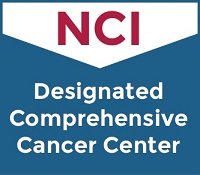Meningioma
Meningioma is a primary brain tumor that affects the meninges, which are the membranes covering the brain and spinal cord. They are the most common type of brain tumor, totaling about 50 percent of all noncancerous brain tumors.
Primary brain tumors start in the brain and can be benign, or noncancerous, or malignant, meaning cancerous. Although most meningiomas are not cancerous, some are.
While most noncancerous meningiomas grow slowly, they can become very large. If not diagnosed or if left untreated, even a benign meningioma can cause disability or be life-threatening. And although most people have only one meningioma, other people may develop several meningiomas growing in different parts of the brain or spinal cord at the same time.
Meningioma Types
The World Health Organization (WHO) classifies three grades of meningiomas ranging from benign to cancer.
- Grade I – Benign meningiomas. These make up 80–90 percent of meningiomas. The cells have a normal appearance.
- Grade II – Atypical or invasive meningiomas. These tumors make up about 5–15 percent of meningiomas. The cells look slightly abnormal and can grow into nearby normal brain tissue and bone. They are also more likely to grow back after surgery.
- Grade III – Malignant meningiomas. Cancerous meningiomas make up about 1–3 percent of all meningiomas. The cells have little or no resemblance to normal brain cells. Malignant meningiomas grow and spread rapidly.
Meningioma Causes
The exact cause of meningioma is not known. Risk factors include:
- Age – Adults age 65 or older have the greatest risk but meningioma can develop at any age.
- Gender – Women have a greater risk than men for noncancerous (grade I) meningioma due to increased hormone levels; women and men have equal risk for cancerous (grades II and III) meningioma.
- Radiation exposure – This is the only known environmental risk factor for meningioma. It includes having X-rays or radiation therapy, especially during childhood, and accidental radiation exposure.
- Genetic disorders – People with hereditary acoustic neuromas (benign tumors affecting hearing and balance) have a higher risk of developing cancerous meningioma.
Symptoms of meningioma usually come from the tumor pressing on the brain or spinal cord. Specific symptoms depend on the tumor location. These include:
- Confusion
- Headaches
- Loss of hearing (ringing in the ears) or smell
- Muscle weakness
- Nausea and vomiting
- Seizures
- Vision trouble
Meningioma Diagnosis
Because noncancerous meningiomas are slow-growing, symptoms may not be noticed or seen as normal signs of aging. Meningioma symptoms can also resemble those of other conditions. There is no way to know the rate of growth or how long a tumor has been growing before diagnosis.
At University of Maryland Medical Center, you'll receive care from an experienced team that includes cancer specialists and surgeons, neurologists and neurosurgeons, and neuroradiologists.
To detect and locate a meningioma, you may have one or a combination of imaging procedures that include CT scan and MRI. To accurately grade and stage a meningioma, you will have a biopsy to collect a tissue sample for examination by our neuropathologist.
Meningioma Treatment Options
The treatment you receive depends on the grade of your meningioma.
Grade I meningioma – The most common treatment for grade I meningioma is surgery to remove the tumor and some surrounding healthy tissue. Other treatment options include observation with surveillance imaging and stereotactic radiosurgery.
Grades II and III meningioma – Surgery is also the primary treatment for grades II an III meningiomas. The goal is to grade the tumor – determine the type – and remove as much safely as possible.
Radiation therapy usually follows surgery to delay or prevent the tumor from growing back. You may also have chemotherapy in combination with surgery and radiation.
Clinical Trials
Your doctor may also discuss the possibility of a clinical trial for meningioma treatment. If you are eligible, you may receive new targeted therapies or immunotherapy medications. This allows you to have the most advanced care possible that is not available elsewhere while helping to advance scientific knowledge to improve the care of future patients.
Learn more about brain tumor clinical trials at UMGCCC.
Make an Appointment
To make an appointment or learn more about advanced treatment for meningioma for yourself or a loved one, call 410-328-6034.


